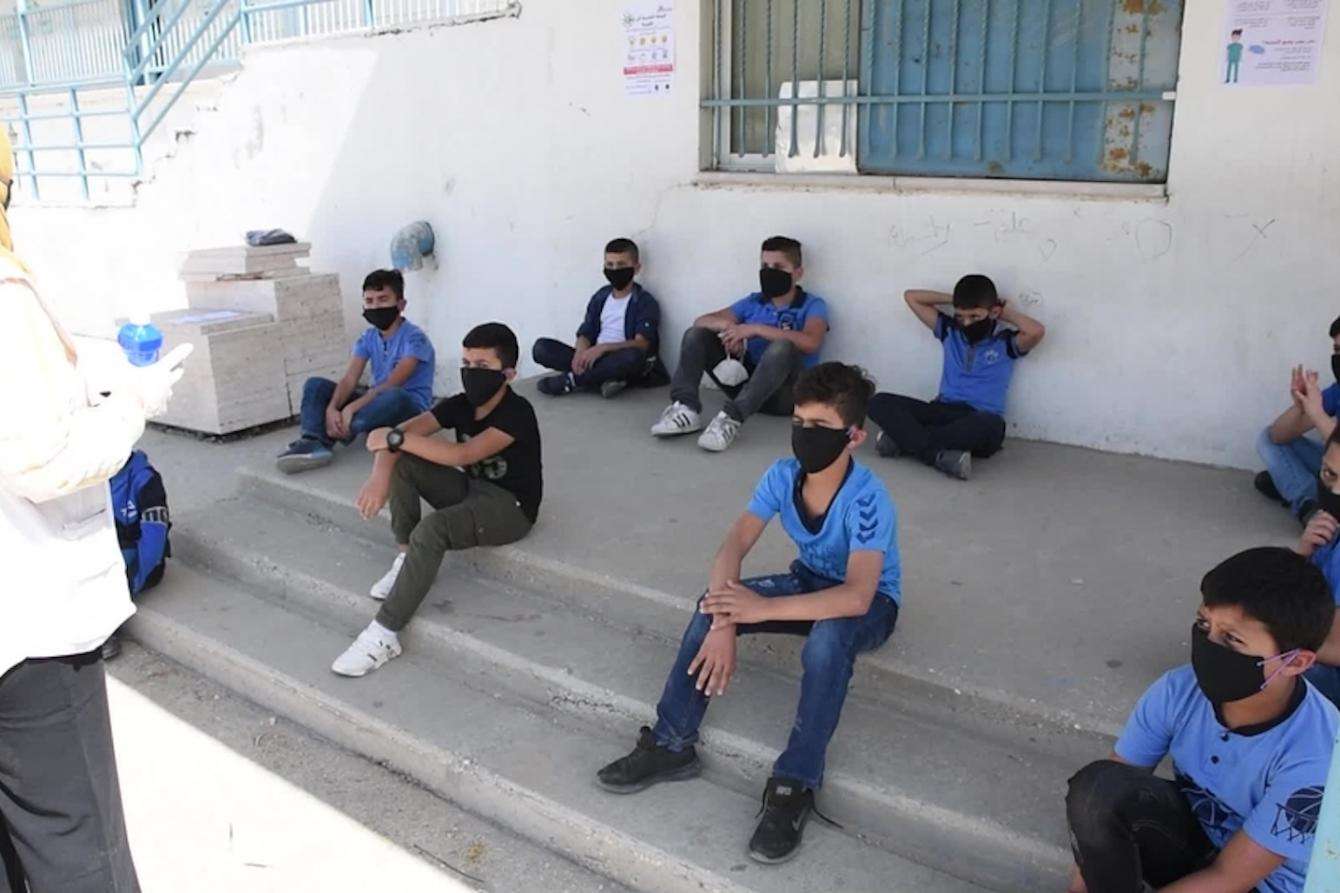Today, mental health care is at the forefront of Doctors Without Borders/Médecins Sans Frontiers (MSF) projects from Latin America to Africa, from Asia to the Mediterranean region and across Europe. Over the past 10 years, MSF has increased the number of mental health consultations in our projects by 230 percent worldwide.
This enormous rise in mental health care activity illustrates the shift in our approach as well as the diverse and complex psychological needs people face in a myriad of contexts, from war-wounded and traumatized children in the Middle East, to families fleeing conflict and making perilous journeys across Africa, Central America, and the Mediterranean Sea. Over the past decade, MSF has shifted its approach to mental health care by integrating it throughout our activities.
Caring for refugees in Greece
“As there are almost no providers in the contexts where we work, we often have to create our own mental health programs,” said Marcos Moyano, MSF mental health advisor. “I recently visited our projects in Greece, where we provide specialized mental health support for refugees, migrants and asylum seekers.
“The suffering these people have been exposed to and the level of their mental health needs are among the highest we have ever seen. But there are very few organizations who provide specialized care to these people,” said Moyano.
In addition to the lack of services, people face taboos, stigma, and suspicion surrounding mental health in many parts of the world. We work with communities to spread awareness and educate people about the importance of mental health. Despite the varying challenges, whether providing support in emergencies or treating people affected by war and conflict, treating mental health needs across the world remains a priority for our teams.

Living under occupation in the Palestinian Territories
In the Palestinian Territories, people live under ongoing occupation and regularly experience intense violence. Those who are forced to live in such conditions often suffer from mental health concerns.
People who come to our clinics present with varying symptoms including sadness, anger, hopelessness, nightmares, bed-wetting, and suicidal thoughts. In the Hebron and Nablus districts, our teams of psychologists and counselors carry out individual and group sessions with adults, teenagers, and children.

“Our life is difficult. All the settlers around are armed,” said Mariam Khdeirat, a resident of Hebron. “My children were walking with the sheep and the soldiers and settlers came to attack them. Some of the settlers were armed and some were with dogs. Day and night, we feel threatened and afraid. Even when we sit to eat, we are afraid of them,” she said.
“We are providing mental health support to the residents of Hebron, but we cannot solve the problem of settler violence against the Palestinian people,” said Salah Daraghmeh, MSF project coordinator in Hebron. “Only the Israeli authorities can do that.”
Coping with constant conflict in Ukraine
After seven years of conflict, mental health needs among people in towns and villages near the contact line in eastern Ukraine are worryingly high. Many people have lived with the constant risk of violence since 2014.
For people still living through it, the trauma—both of the initial fighting and of the ongoing threat of explosions, shooting, bombing and landmines—is part of daily life.
“My daughter was just in front of me, 10 meters away. I was at the doorstep,” said Tetiana Karadzheli, an MSF volunteer in Kamianka village, Donetsk region. “Suddenly, the shooting started. I just remember being hit on the head.
“I woke up [with] my grandson hugging me, ‘Granny, we are alive, we are okay.’ That was it – the last drop,” said Karadzheli. “I am a strong woman but at that moment, I broke. There are no words to explain it, that feeling of fear. Safety didn’t exist at all.”
Our psychologists, and the doctors and nurses we work with, in eastern Ukraine see many patients struggling with depression, anxiety, and other common disorders.
“Most frequently it’s acute stress and grief for the loss of their loved ones and homes. In addition, anxiety-related conditions such as insomnia, are wide-spread,” said Tetiana Azarova, MSF psychiatrist.
People living in small towns and villages often can’t afford to travel to cities or pay private mental health providers, even if they can overcome the stigma associated with mental illness and seek treatment.
Training and supporting family doctors and nurses are examples of the new approaches our teams are implementing to make mental health care services available for conflict-affected communities in eastern Ukraine. However, more support and more programs like this are needed to ensure that patients are no longer left to suffer in silence.

The evolution of mental health care
“In the last decade, there has been significant progress in terms of awareness of mental health needs and the existent gaps of quality care,” said Moyano.
“Nowadays, governments, donors and the international community are much more sensitive to these aspects,” he said. “With the COVID-19 pandemic, we saw mental health widely recognized as a key aspect of people’s well-being.”
However, even though mental health awareness has grown and effective treatments for mental health conditions are available, we know that in low- and middle-income countries, less than 10 percent of people in need receive adequate treatment.
“In the coming years, I think that we will continue encountering tremendous levels of human suffering linked to man-made and natural disasters that will challenge the capacity of governments and organizations to effectively provide a response,” said Moyano.
“In contrast, the resilience of communities and the strength of local organizations and volunteers will play a key role in protecting and supporting those in need.”
How you can help
Not everyone can treat patients in the field. But everyone can do something.
Some humanitarian crises make the headlines—others don’t. Unrestricted support from our donors allows us to mobilize quickly and efficiently to provide lifesaving medical care to the people who need it most, whether those needs are in the spotlight or not. And your donation is 100 percent tax-deductible.




